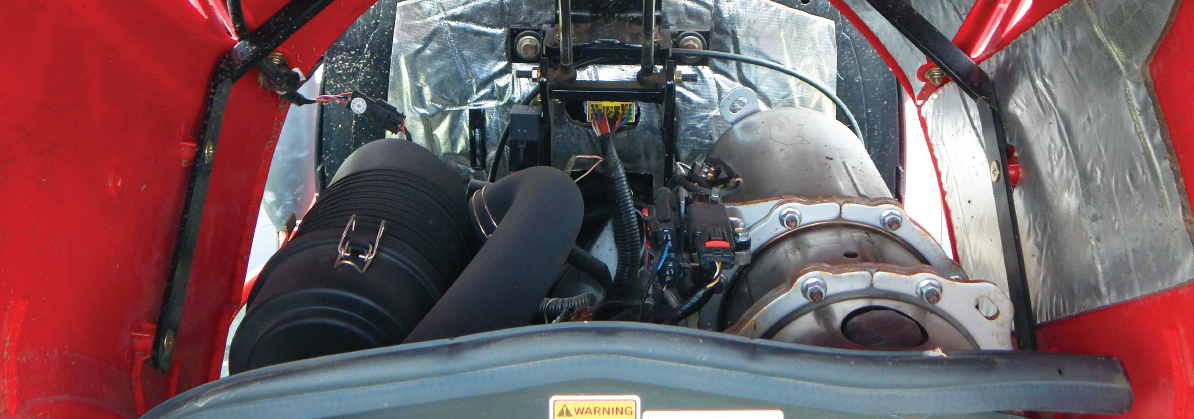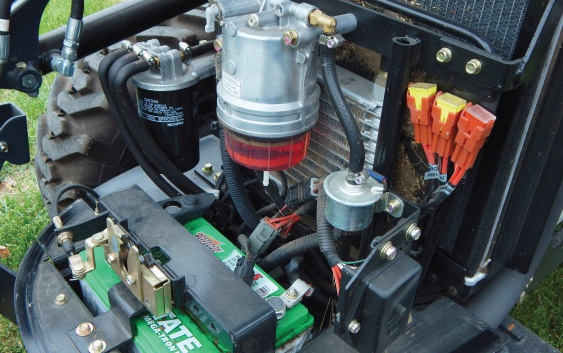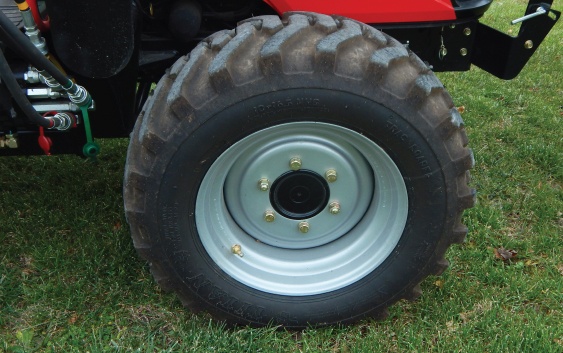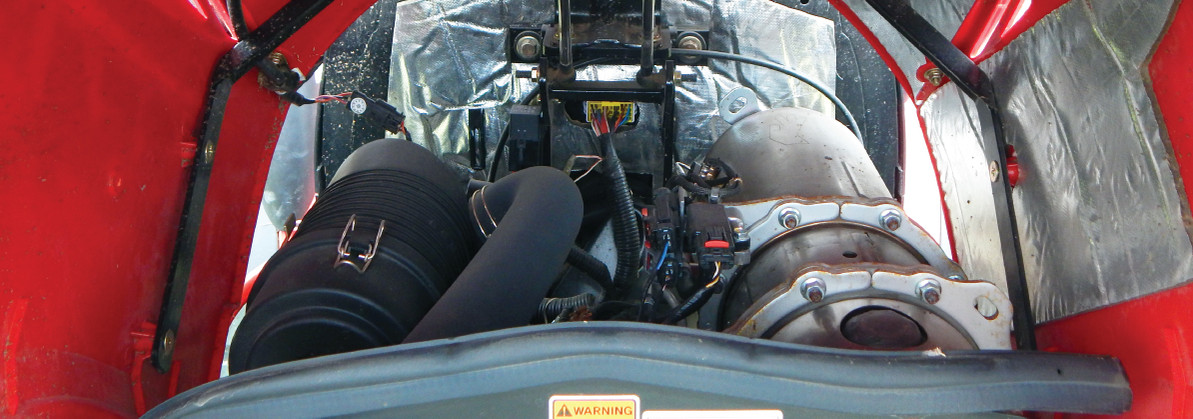Winterizing Your Tractor

Farm equipment is an investment. At Tractor Tools Direct, we want to make sure that our customers are informed about how to best protect that investment. Preventive maintenance is one of the best ways to ensure that your equipment will not only last through the next growing season, but will also be able to be passed on to the next generation. Therefore, we will provide tips on how to winterize your tractor to keep it in tip-top condition season after season.
First, it is always best to refer to your tractor’s owner’s manual for the manufacturer’s recommended winter preventative maintenance schedule. With so many brands and models, there are many variations in specific tasks that will need to be performed. It is also wise to keep a logbook of any maintenance tasks you perform. This will allow you to keep track of the work you’ve done over the seasons and help you to predict what will need to be done in the future. A logbook also comes in handy when a problem requires a trip to the mechanic since a list of recently performed maintenance tasks can lead to a more efficient experience.
Operators Manual
Once you have checked the manual and prepared your logbook, it is time to give your tractor a quick once over to make sure that it will be in top operating condition after winter. This can be accomplished by giving it a quick cleaning while checking for anything that doesn’t look as it should. Be sure to take note of any cracks, leaks, foaming, discoloration, corrosion, etc. that might require the attention of a mechanic.

Hoses, Radiator, Caps, Gaskets, Fittings and Points
More specifically, check hoses for deterioration including cracks and holes. Replace these hoses as needed. If any rubber hoses are looking worn, it might be wise to replace them now. This will prevent condensation entering the system if the hoses should crack or dry rot over the winter. It is also a good idea to check radiator and other reservoir caps for cracks and/or leaking gaskets. Be sure to check all filters and replace/clean them as needed. This is also a good time to grease all fittings and hinge points with an appropriate grease type per your tractor manufacturer’s specifications.
Fluids
Next, be sure to check all fluids and replace or top them off as needed. If there are signs of foaming or condensation, especially in hydraulic or transmission systems, it will be necessary to drain and replace the fluids. Water likes to separate from oil over time and tends to sink to the bottom, however water can also be suspended depending on the fluid and its additives as well as how long it has been sitting still. Most fluids will have a dispersant additive along with detergents and anti-wear additives to help combat these contaminants while operating, but they can only help so much before the contaminants are abundant.
Fuel Tank
Along these lines, you will next need to fill up the fuel tank so that moisture will not have room to condensate inside the tank. Additives can be added to help the fuel last through the winter. Sometimes adding a fuel stabilizer or anti-gelling agent can help as can an anti-algae/fungus supplement to stop algae growth in diesels.
Antifreeze
Now is also a good time to add antifreeze checking to make sure that the one you choose is adequate for your area’s winter temperatures. It should be noted that older tractors that use only water in the cooling system will need to be drained. This is rare though as most use antifreeze.

Tires
Tire maintenance is also crucial. All tires should be checked for proper levels of air inflation or ballast material. Most ballast materials won’t freeze as most contain antifreeze; however, this should be verified for your tractor. It is also a good idea to make sure ballast materials include a rust inhibitor. If your tractor will be parked on the ground, it is always best to park over planks of wood or chunks of concrete in order to extend the life of your tires. Having a single spot of a tractor tire exposed to the cold ground for an extended period of time is detrimental to a tire’s longevity.
Non-painted Surfaces
Using a conditioner coating on your seats and steering wheel will enable them to weather the dry conditions of winter more successfully. Applying an ignition spray to electrical components is also a good idea along as is the application of a rubber conditioner to hoses and tires. However, one should always use caution when applying any chemical to an area that will be prone to excessive heat in order to avoid a fire hazard. For further protection from the elements, a lubricant such as fluid film can be applied to any non-painted surfaces. This will serve as a rust inhibitor protectant.
Storage
Probably the most important piece of advice for winterizing your tractor is to avoid leaving it out, unprotected in the elements. Make every attempt to store your tractor under some sort of a structure or at least wrap it with a good quality tarp. If possible, after trickle charging the battery, disconnect it and store it inside to prolong its longevity. If the seat can be easily removed, storing it inside will further protect it from weather-induced fatigue and cracking.
While ensuring that your tractor and its removable parts have proper cover, now is also a good time to check the exhaust system. If the exhaust is pointed vertically, it should be covered so that water and snow will not make their way inside. This can cause rust to form inside of the exhaust as well as potentially reaching components such as the turbo or valves in the head. In a worst-case scenario, moisture could make its way into the cylinders causing the inside of the cylinder walls to rust.
Winter Usage
For those needing to use their tractor over the winter, it’s a good idea to keep starting fluid and deicer around for when the tractor needs to be started. A deicer can be used to free up moving parts like the ignition switch or door lock cylinder should they become frozen. Some people even use block heaters and/or heated blankets to help maintain a reasonable temperature on vital components. This is especially helpful if you plan on using your tractor throughout winter and if the low temperatures in your area tend to be extreme.
-
Hopefully some, if not all, of these tips will help to ensure the longevity of your tractor. A tractor may be the single most valuable piece of equipment on a farm. It is an investment that is definitely worth the time and effort of a little preventive maintenance.
Recent Posts
-
The Subcompact Economy Hay Package: Your Gateway to Small-Farm Hay Production
For small-acreage farmers who want to step into hay production with confidence, affordability, a …Feb 6th 2026 -
Power Harrows for Spring Soil Prep: The Must-Have Tool for Small Farms
Spring is coming fast — and for growers, livestock managers, and land stewards, that means it’s …Feb 1st 2026 -
The Evolution of the Kubota BX Series: How a Sub-Compact Became a Powerhouse
While we here at Tractor Tools Direct do not sell Kubota BX tractors themselves, we do sell plen …Jan 15th 2026




